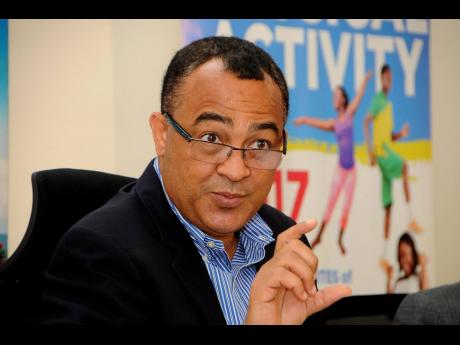New COVID deaths hours after hospital admission
Minister of Health & Wellness Dr Christopher Tufton has revealed that the two patients who died from COVID-19 on Sunday did so within 24 hours of being admitted to hospital.
The deceased are a 64-year-old man from Clarendon and a 73-year-old woman from St Thomas. Their deaths bring Jamaica’s tally to 12.
The development comes amid a surge in coronavirus cases in Jamaica, with the eight moderately ill patients the highest ever count in that categorisation since the disease hit the island’s shores on March 10.
Total hospitalisation numbers, including confirmed and suspected positive cases, stand at 35.
Up to August 3, Jamaica had 905 confirmed cases of the new coronavirus, 100 of which are active.
Tufton said that in one of the two recent fatal cases, the person had been hosting overseas relatives. Contact tracing is still under way in the other case.
“They were symptomatic and had issues prior to, and subsequent to, the testing that was done, which is normal when you come in displaying symptoms that they were tested and the test results showed that they were positive,” Tufton told The Gleaner on Monday.
The health minister said that the circumstances of the case suggest that the Government needs to reiterate the importance of home quarantine arrangements.
When asked if the health ministry was concerned that suspected COVID-19 patients were delaying medical intervention, he said: “To the extent that we have cases that present at their most advanced state, it would represent a concern, but people deteriorate depending on their existing immune system and any underlying conditions that they have.”
Tufton appealed to Jamaicans and visitors to respond early if they have symptoms “rather than wait until they are in distress, especially respiratory distress”.
CASE BACKLOG
The minister did not have an update on last Thursday’s disclosure that the backlog of coronavirus test results had been shaved down from 10,000 to 3,000.
Tufton said that the backlog is not affecting the processing of new samples.
“We deal with the new samples each day and then clear up the backlog, so we are operating on parallel streams,” he said.
He sought to explain that though there is no distinction in the reporting of positive cases, whether from the backlog or more recent samples, that contact tracing is done in all instances.
“It doesn’t stop the work in contact tracing ... but if the backlog is delayed long enough, then some of that contact tracing would be late in starting and it could mean spread if people are symptomatic,” the health minister told The Gleaner.
Tufton added that Jamaica has a “relatively consistent number” of cases based on the samples that are collected and that the double-digit numbers being reported do not constitute a surge in cases.
The current COVID-19 record for Jamaica consists of 340 imported cases, 248 contacts of confirmed cases, 44 local transmissions not epidemiologically linked; 236 related to the Alorica cluster in St Catherine. Twenty-six are under investigation.

